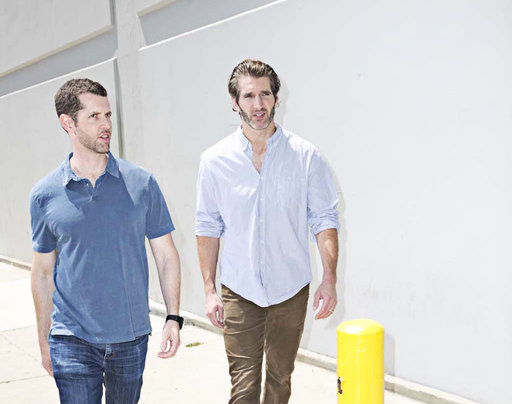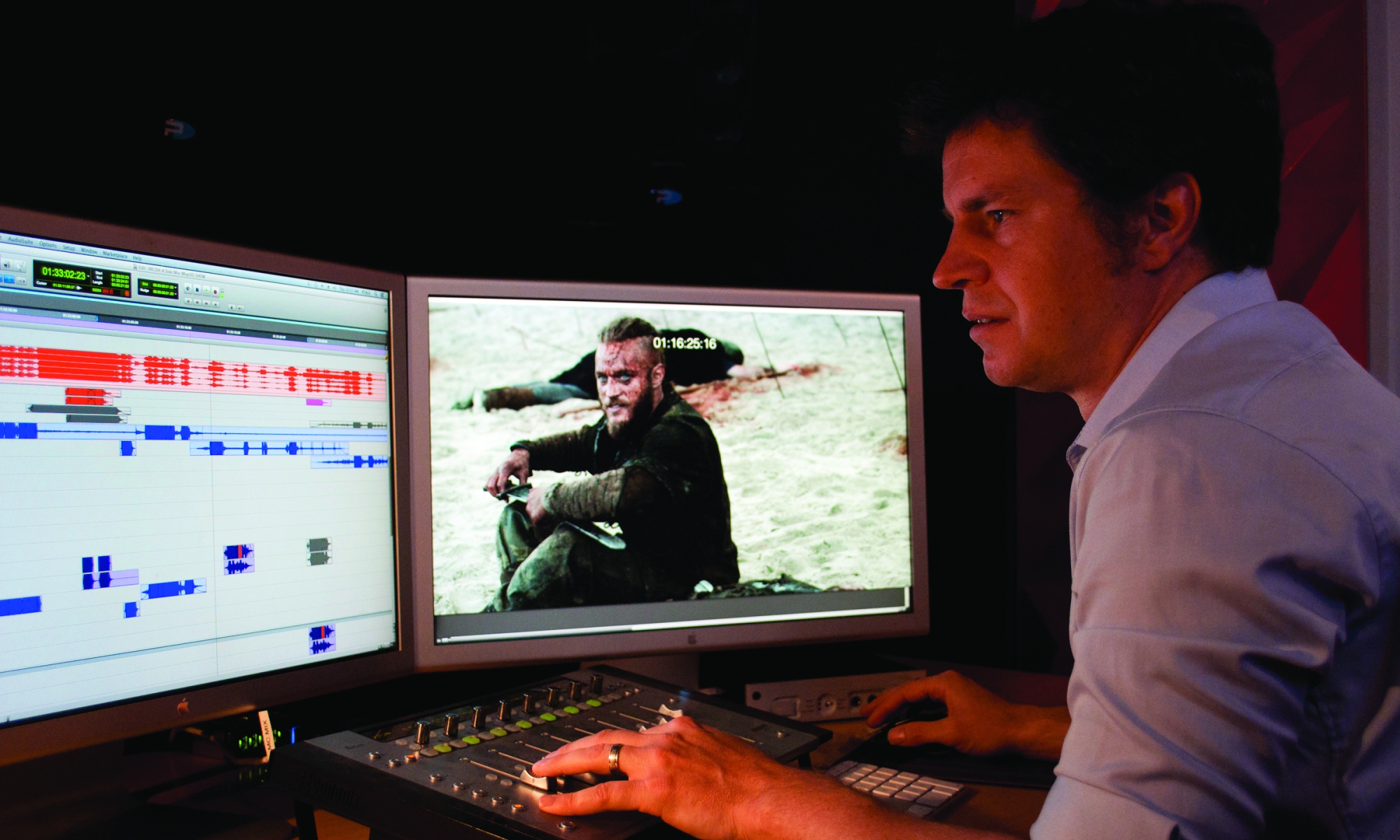Nellie Andreeva is Deadline’s TV editor. Michael Ausiello is founder and editor in chief of TVLine. This story appeared in the June 19 issue of AwardsLine.
The shows that have won the best drama Emmy for the past five years, AMC’s Mad Men and Showtime’s Homeland, both have been going through up-and-down seasons recently. That is not expected to affect each show’s nomination chances, but it does open the door to an upset. Will AMC’s Breaking Bad finally land a series nom? Or will PBS’ Downton Abbey accomplish the rare feat of winning two top Emmy categories after earning the movie/miniseries trophy two years ago? HBO’s red-hot Game of Thrones also appears likely to get another nom. And then there is Netflix’s newcomer, House of Cards. Here’s a look at each show’s chances for gold come September.
THE AMERICANS
Because FX’s 1980s-set spy yarn is still in its freshman season—and still suffering from comparisons to Showtime’s Homeland—its best bets for nominations are probably in the lead acting categories for Keri Russell and Matthew Rhys, and supporting for Noah Emmerich, though their chances might be hampered by their lack of Emmy history.
BATES MOTEL
A&E’s moody Psycho prequel stands its best Emmy chance with Oscar-nominated star Vera Farmiga.
BOARDWALK EMPIRE
Because this category is more crowded than a Game of Thrones cast party—and HBO’s Prohibition-era drama has never generated much heat—it might not be able to eke out a third consecutive nomination. On the other hand, Bobby Cannavale—so good as the year’s big bad, Gyp Rosetti—might have a chance for a supporting actor nom. (He won in 2005 for Will & Grace and earned a second nom for Nurse Jackie in 2012.)
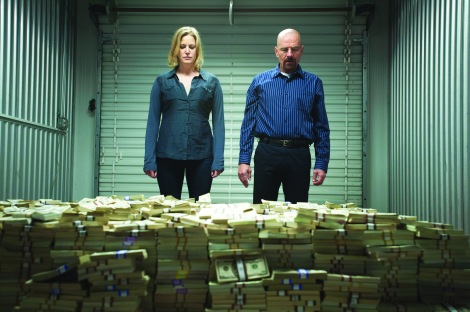
BREAKING BAD
Nominations for AMC’s meth-fueled hit and its stars—three-time lead actor winner Bryan Cranston and two-time supporting actor winner Aaron Paul—should be no-brainers. The fact that the series’ last season was an abbreviated eight episodes long—and those episodes aired a summer ago—might, if only slightly, diminish its chances. However, the launch of the final eight-episode installment will coincide with the kickoff of the second phase of Emmy voting, likely keeping the show on voters’ minds.
DAMAGES
Passed over for the Emmy twice already, DirecTV’s now-dead-and-buried legal thriller has virtually no shot at being nominated this year. The same can’t be said of star Glenn Close, who’s already taken home the lead actress prize in 2008 and 2009.
DEXTER
Showtime’s serial-killer thriller finally played its trump card last season—by revealing the title character’s deadly pastime to sorta-sister Deb. But its time might have passed: 2012 marked the first year that it wasn’t nominated since 2007. So it will probably have to settle for a nom for five-time nominee Michael C. Hall or, if it’s really lucky, a first for Jennifer Carpenter.
DOWNTON ABBEY
PBS’ acclaimed period piece rebounded from a shaky second season with a more warmly reviewed third. And it kept people talking by killing off two major characters (RIP, Matthew and Sybil). If nothing else, count on a supporting actress nomination for Dame Maggie Smith, who already won twice (once when the show was nominated as a miniseries, and again when it entered drama).
ELEMENTARY
CBS’ modern-day take on Sherlock Holmes is about as likely to be nominated as its lead detective is to miss a clue. Its only chances are noms for Jonny Lee Miller or Lucy Liu (a contender for Ally McBeal all the way back in 1999).
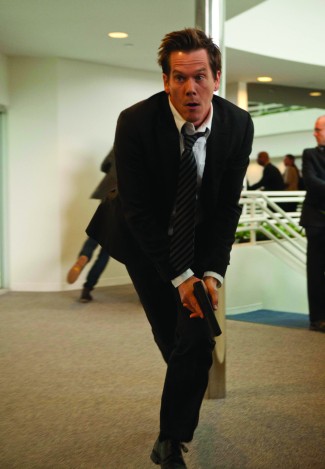
THE FOLLOWING
If there’s one thing the Emmys love, it’s movie stars doing television. So although Fox’s Kevin Williamson chiller probably won’t scare up a nom, matinee idol Kevin Bacon could.
GAME OF THRONES
No longer a niche hit, HBO’s mainstream breakout is a lock for a third consecutive nomination. Unfortunately, the cast is so large that it’s nearly impossible for voters to single out any performer, with the exception of two-time nominee and 2011 supporting actor victor Peter Dinklage
THE GOOD WIFE
Though passed over for a nomination in 2012, CBS’ law-office drama-procedural hybrid could break back into the race this year—first, because it had a solid season, and second, because it’s one of the very few broadcast dramas to have any shot. Julianna Margulies (2011’s lead actress victor) is also a safe bet to receive a nom.
HANNIBAL
NBC’s well-reviewed Silence of the Lambs prequel probably needn’t set an extra place at dinner for Emmy. But, if for no other reason than making us forget Sir Anthony Hopkins’ version of Dr. Lecter for a moment, Mads Mikkelsen deserves to be a contender.
HOMELAND
In spite of complaints that, in its second season, the Showtime smash became a soap opera, it remains a lock for a second nomination. Mandy Patinkin might also sneak into the supporting actor race on the heels of last year’s lead wins for Damian Lewis and Claire Danes.
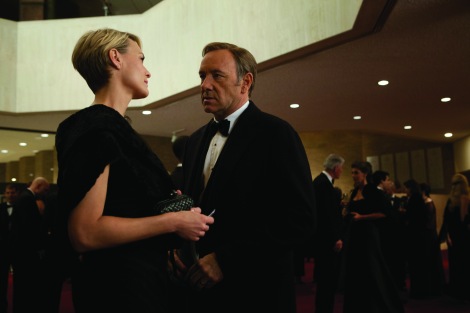
HOUSE OF CARDS
Speaking of how Emmy loves movie stars doing television, it definitely applies to two-time Academy Award winner Kevin Spacey and his political drama. The only question is, will voters recognize the actor—a 2008 Emmy nominee for HBO’s Recount—or the series? If the answer turns out to be both, leading lady Robin Wright—herself no stranger to the multiplex—could also get lucky.
JUSTIFIED
Thanks to Margo Martindale’s star turn two years ago as mommie dearest Mags Bennett, FX’s modern-day western was able to break into the Emmy derby. Now, buoyed by a well-reviewed fourth season, the show seems well-positioned to do so again.
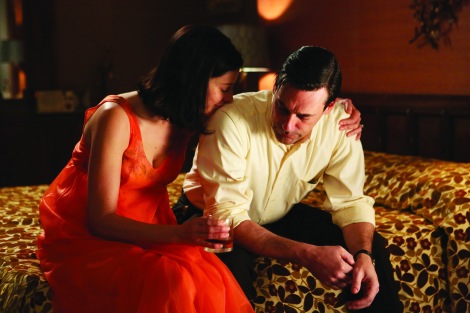
MAD MEN
The good news for AMC’s signature hour: Nicotine-stained though it may be, it still is the network’s prestige crown jewel. Therefore, a sixth consecutive nomination is a foregone conclusion. The bad news: So far, this season has had viewers and critics alike crying “been there, done that.” Worse, it’s yet to provide a showcase for any actor that might break
the cast’s stunning losing streak. (To date, not even Jon Hamm has won an Emmy.) Its record: 0 for 25.
NASHVILLE
Just about any project that Connie Britton takes on becomes a contender (Friday Night Lights, American Horror Story). But even if three-time Emmy nominee Britton’s track record isn’t enough to get voters to recognize ABC’s backstage soap opera, it’s undoubtedly enough to bag her a fourth nod. And Britton’s colead, Hayden Panettiere, also had many more chances to shine this season, which elevates her chances.
THE NEWSROOM
Though this HBO property is a freshman series, its creator is the ultimate Emmy catnip: Six-time winner Aaron Sorkin. Add to that mix the two Golden Globe nods the show received in December, and both it and leading man Jeff Daniels are looking pretty good to be nominated.
PARENTHOOD
NBC’s sleeper is coming off its strongest season yet, but it’s still a longshot for a nomination. (To date, only guest actor Jason Ritter has been recognized.) Its great white hope: Monica Potter, who shone in the storyline that found her character, Kristina Braverman, battling cancer.
SCANDAL
Watercooler buzz doesn’t get much louder than the fandemonium that surrounds this Shonda Rhimes sudser. If voters are willing to look past some of the D.C. drama’s over-the-top plot twisting, not only the ABC hit but leading lady Kerry Washington—and supporting players Jeff Perry and Bellamy Young—could be on the receiving end of nominations.
SOUTHLAND
Though TNT’s gritty (and now canceled) LAPD drama has long had critics behind it, the only Emmy love it’s ever been shown was for stunt coordination. Its last chance to change that for Michael Cudlitz, who gave the performance of his life as Officer John Cooper.
SHAMELESS
William H. Macy’s boozy Frank Gallagher has about as much of a chance of getting his hands on a top-shelf drink as his Showtime sleeper does of being nominated. However, the actor—as well as costar Emmy Rossum—might have a chance.
SONS OF ANARCHY
As much as Emmy loves movie stars doing television, that’s how much it hates bikers. That’s the only way to explain how—even coming off its highest-rated season to date—FX’s fringe hit still won’t get a nomination. (Odds are, it won’t—even badass Katey Sagal has been snubbed!)
SUITS
After a promising first season that earned star Patrick J. Adams a SAG nomination, USA’s legal drama Suits upped its game in Season 2. While it is a longshot, it could break into the acting categories with stars Adams and Gabriel Macht, scene-stealing supporting actor Rick Hoffman and recurring guest star Rachael Harris.
THE WALKING DEAD
Now that AMC’s zombie smash is cable’s top drama, voters might not be able to look down their noses at it. So even if the genre series itself doesn’t break in, perhaps Andrew Lincoln will earn a nom.
Andy Patrick contributed to this report.


